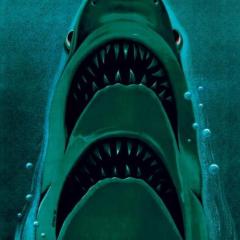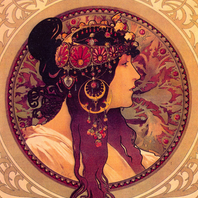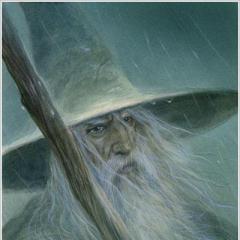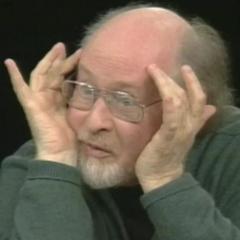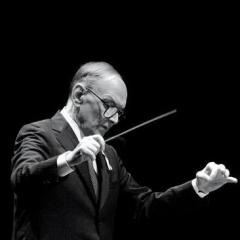Leaderboard
Popular Content
Showing content with the highest reputation on 14/11/13 in all areas
-
The LA Times review Here's more info about the Williams composition:2 points
-
Who Really Created the 'Inception' BRAAAM?
Koray Savas and one other reacted to Sharkissimo for a topic
Zimmer's genius is in his orchestration - but not orchestration in the traditional sense. Like Jerry Goldsmith, he's a master at unusual and startling timbres - both acoustic and electronic. Like Bernard Herrmann, he creates bizarre ensembles (8 pedal steel guitars, 4 tubas etc.) that a concert orchestra would never be able to afford, that are purely cinematic in nature.2 points -
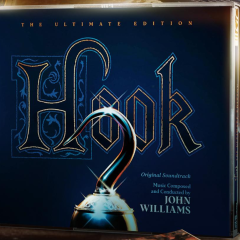
The Book Thief (2013) - New Williams film score!
Joe Brausam reacted to Jay for a topic
I've listened to the OST all the way through twice now and I must say it's a lovely little score. It definitely doesn't have a "wow" factor that knocked my socks off, like Tintin, War Horse, and Lincoln all said, but it's perfectly pleasant all around, and I'm sure my appreciation will only grow in time as I give it more detailed and concentrated listens. I must say for now, the album structure is a bit off-putting. Too many short tracks that don't have much flow from one to the other. Usually Williams is very good at taking the time to link cues together into longer tracks, plus write and record additional material not needed for the film to enhance the album experience, but I don't think he had the time to do so in this case, and I think it shows. Overall though there is nothing wrong with the score itself, I'm sure it fits the film just fine, and it's a nice enough listen on it's own. As others have mentioned, it's like welcoming an old friend. I have no problem whatsoever with the fact that it's not "original" - I like Williams sound and wouldn't want him to abandon it with every score and exclusively be reinventing himself, you gotta have a nice blend of doing that and revisiting past ideas!1 point -
1 point
-
The Book Thief I can see why the comparison to Desplat - the score has the same kind of sense of restraint. It's not John Williams of huge self-important themes and grand melodrama and, as such, it won't exactly appeal to everyone. There is a decidedly European feel to the music, something Desplat, Kilar, Iglesias or even Morricone would write for a film like this - it's less showy stylistically, emotionally (no matter what critics say) and ethnically, and yet able to conjure a specific time and place. Also, more contemplative than Hollywood-cathartic, less interested in developing leimotifs and more focused on tackling the subject in a broader sense. Reminds me of Presumed Innocent, of all things, with some slight touches straight out of Angela's Ashes. I really love The Train Station track - it's so elegant. And the woodwinds in the second Revealing the Secret are pure magic. Rudy is Taken and Finale are amazing too - only Williams can write things like that. It's much better than Lincoln - richer emotionally and developed with greater detail. I am not surprised why so many people say "meh", but also disappointed there is no attempt to go beyond the superficial and boring "there's no hit theme here" accusations and go slightly deeper under the surface to hear all the subtle goodies Williams is leaving us to enjoy. To see him in a slightly different light, basically. I would like to believe that there is more discover in his music beyond great tunes. Delicate and sensitive work and crafted with great care. I've listened to it twice in a row. Clearly up there with the best of 2013 and much better than I anticipated. Karol1 point
-
1 point
-
That's right Star Trek: The Motion Picture gave us the coolest BRAAAAMS ever. Karol1 point
-

What Is The Last Film You Watched? (Older Films)
Dixon Hill reacted to Jay for a topic
The Shining (1980) My first time ever seeing it. Unfortunately I watched the "International Cut" and not the "normal" version, so I haven't seen the "whole" movie yet I suppose (See a listing of the differences here: http://www.movie-censorship.com/report.php?ID=1215) Anyway, I loved the film. Talk about a killer spooky/creepy atmosphere. I can tell much from this film has been copied/imitated in the years following, though I dunno if anyone's ever pulled it off as successfully as it is here. The music was awesome, damn near spot on every time, the movie is spotted very well. Kubrick does a great bit of suddenly inserting shocking footage in the middle of a long slow shot that works very well every time. And the now-iconic shots of the blood coming out of the elevators, and the twin girls standing in the hotel hallways were just fantastic to see in context. The story is simple but effective. I did think that Jack went too quickly into crazy town, and was a total douche to his wife before his first encounter with spirits, but maybe some of that is worked out better in the full movie. I'll definitely be watching this one again, great film.1 point -

Kunzel
Joni Wiljami reacted to Jay for a topic
Love the old Kunzel CDs from the 90s. The Great Fantasy Adventure Album was one of my first film score purchases1 point -
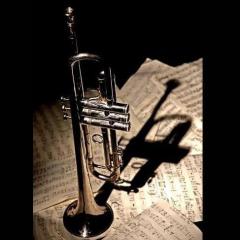
Conductor Erich Leinsdorf Breaks News of Kennedy's Assassination to BSO Audience
Not Mr. Big reacted to BTR1701 for a topic
SYMPHONY CROWD HEARS OF AN ASSASSINATION The radio microphones were present at a Boston Symphony Orchestra concert at an extraordinary moment in American history. On November 22, 1963, conductor Erich Leinsdorf was leading the regular Friday afternoon BSO concert at Symphony Hall. Before the program began, it had been reported across the nation that president John F. Kennedy had been shot by a sniper while riding in a motorcade in Dallas. It was known, too, that his injuries were serious, but that was all the information that was available. The orchestra then went on to play the Funeral March from Beethoven's Eroica Symphony for the grieving audience. http://www.youtube.com/watch?v=IVNKNz-lc6k#t=606 One of the last remaining witnesses to the orchestra's funeral march speaks about his experience: As is evidenced by the radio announcer's preamble few in the hall, even backstage, knew in advance what had happened or what, as far as the concert was concerned, was about to occur. One of those few, and one of the only remaining witnesses to that event still with the orchestra, was its librarian, then and now, William Shisler. In a phone interview, he spoke publicly for the first time about his recollections. The memories, he confides, are still painful. He hasn’t been able to bring himself to listen to the broadcast in the 50 years since. Along with many others he had already heard about the shooting and that Kennedy was hospitalized. "I was in the library working on scoring some music, when my wife called from our home in Needham, Massachusets – it's around 10 miles from Boston," he says, "She liked to watch the soap operas in the afternoon. On this day she was watching one called As The World Turned. And the world did turn. The program was interrupted to report the shooting in Dallas. So she phoned me immediately and I was one of the first to hear that in Symphony Hall." Word quickly spread, but as the musicians prepared for their afternoon concert and the audience started to arrive it was not yet known whether or not Kennedy had been killed. "Nobody in Symphony Hall was aware. It was near 1 p.m. in Dallas when they announced it, which was nearly 2 p.m. in Boston, coinciding almost exactly with the scheduled start of our regular Friday afternoon concert." With the show due to start in less than ten minutes' time, Shisler got a relayed message from Leinsdorf himself. Run to the archives, put out and distribute the music for Beethoven's Eroica Symphony. The president is dead. Such was the rush that Shisler remembers little of his feelings from that moment. His memories get clearer of the minutes immediately following, when it was incumbent upon him to hasten to the stage with scores in hand. "The musicians were already there on the stage, in their places and of course the hall was filled with people. I had to tell each of the musicians as I was handing out the music what was going on. That was the first they knew of the death. It wasn't an easy moment, for them or for me." In the short pause before the conductor strode out with his own heavy burden, Shisler walked, in something of a daze, back into the wings and then out to the auditorium where he took up his favored listening position, at the back of the first balcony where he could hear but not see. The entrance to the library is nearby and he would sometimes slip through the balcony door to listen in during rehearsals and concerts. He was an accustomed presence there, none of the ushers would have detected anything unusual. Everything seemed normal. Only Shisler knew how different this concert was about to be. "I was – standing there," he says, haltingly, trying to express the strangeness of the moment, "Knowing he was going to make the announcement and I was about to witness that moment. I had already had my own gasp upon hearing the news, and now I'm standing there witnessing the audience about to have the same reaction. When it came, of course Leinsdorf came out and announced to the audience and there was this huge gasp, it was very emotional." Some people left, rushing out in grief. But most, he says, stayed as the orchestra played. Many cried. Shisler was among them. "I was brought to tears by the movement of the Beethoven. It's such beautiful music anyway."1 point -
1 point
-
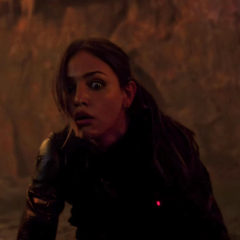
Howard Shore's An Unexpected Journey (Hobbit Part 1)
tannhauser reacted to Faleel for a topic
Later on in the scene, Radagast says "These are dark spells Gandalf, old, and full of hate", it sounds sooo Tolkien, even though the scene is not at all from Tolkien.1 point -
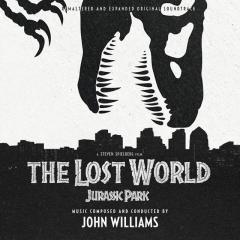
Jurassic World (Jurassic Park 4)
Henry B reacted to Luke Skywalker for a topic
specially if it is an alternate universe with a full working park.1 point -

Jurassic World (Jurassic Park 4)
Gruesome Son of a Bitch reacted to gkgyver for a topic
The bad feeling I have about this movie is epic.1 point

